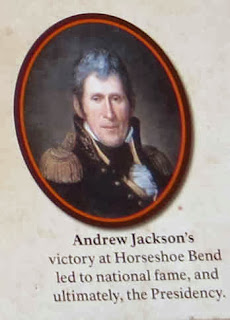...Let us begin with the exception, viz. that I ordered $30 to be paid to Sergeant Childers, who had apprehended and killed Neil Cameron. The regulations of the War Department authorize the payment of that sum, to such person as shall apprehend and deliver up a deserter. Now, that Cameron was a deserter, and that Childers apprehended him, is not denied by any one...
Cornelius Jackson, a private in the 4th regiment, United States infantry, testified, " that he was one of the party who was sent in pursuit of Neil Cameron, private, of the 4th infantry; that the party came upon him about 15 miles from Pensacola, while he was asleep; does not know who gave the order. Our order was wrote by Major [James E.] Dinkins, which was, if we came up with him in the...of Spain, we were to put him to instant death, but if he was out of the limits of Spain, we were to take him back as prisoner, we waked him up and asked him if he had not deserted, and he said he had; we asked him if he did not consider himself a prisoner, and he said he did Sergeant Childress told him that he had orders to put him to instant death; he begged
to be taken back as a prisoner (saying he was on his return to Pensacola) and tried by a court martial, and receive such punishment as a court might put on him Sergeant Childress said it was not worth while, for if he was, he would be put to death as soon as he got back. Cameron said, if he was, it would give him a few days to repent of his drunkenness and bad doings.— Witness saw Sergeant Childress' determination was to shoot him, and witness told Sergeant Childress to let Cameron read the order himself, and he still begged to be taken back as a prisoner; — then Sergeant Childress ordered witness to shoot him, and witness could not do it; — he did not see any occasion for it, for Cameron had given himself up as a prisoner. Childress took
the gun out of witness' hand and stepped round him, while he was sitting down, and snapped it at Cameron's breast twice. Sergeant Childress handed back the gun and told witness to discharge it; he told witness to load her again, and witness done so. Cameron then made this reply to him; 'Sergeant Childress you have snapped your gun at me a second time, now take me home as a prisoner if you please.' He told him it was more than he could do, for his order would not allow of it; Sergeant Childress stepped round to Cameron as he was sitting down, and says I wish I had a heart as big a mill stone, and blowed him through; — then we returned to Pensacola as quick as we could; we reported to the commanding officer what we had done, and he said we had done exactly right."
Question by the prosecutor — " Did you bury him or leave him where you had shot him; and did Col. King pass you on the road as you were returning, and had he any conversation with the Sergeant or yourself on the subject of shooting Cameron?"
Answer —We left him where we shot him, unburied; Col. King did not pass us on our return."
Question by the prosecutor — " Did you not receive in March last at this post, fifteen dollars from Sergeant Childress, as part of the reward for apprehending Neil Cameron?" Answer — " I did."







